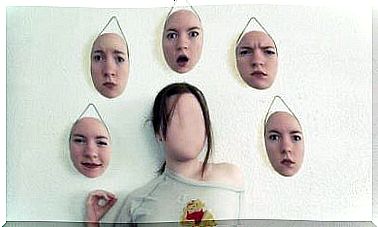Bipolar Disorder And Emotional Relationships

Bipolar disorder is a mood disorder with a complex definition. Its most salient feature is that the person suffering from it evidently presents sudden and drastic fluctuations in his mood. Fluctuations that prevent her from feeling really good – although she experiences moments of euphoria – and that considerably compromise her ability to adapt.
These mood swings bring with them, among other complications, problems in romantic relationships. Emotional instability harms interpersonal relationships, especially those of a couple; because it is difficult to maintain a relationship with someone who experiences such drastic mood swings.
To maintain an emotional relationship, it is essential to know the other, to be understanding and flexible, but you also need a certain stability (it must be, in some way, predictable). Relating to someone who experiences episodes of mania and / or depression that don’t exactly relate to their life experiences is an obstacle along the path of relationships. In this article we explain what bipolar disorder consists of and how it affects the social circle and the satisfaction of the person who suffers from it.

What is bipolar disorder?
It is common, albeit erroneous, to refer to changes in opinions, thoughts, or feelings as a feature of bipolarity. In other words, it is believed that to be happy one day and sad the next is to be bipolar; It is not so. To be diagnosed with bipolar disorder, a number of diagnostic criteria must be met. Statistics tell us that only 0.5-1.6% of the general population does it (Ministry of Health, 2014).
To be able to say that you suffer from bipolar disorder, you have to live a phase of intense good humor, impulsive behaviors that lead to big expenses, projects or radical changes, and little need to sleep for at least two weeks. Being very happy or sad every other day, therefore, does not mean suffering from bipolar disorder. It is possible to have mood swings or conflicting personality characteristics without leading to mental illness.
What do we know about bipolar disorder and emotional relationships?
Relationships with a person with bipolar disorder are complicated; however, when the disorder is under control and the sufferer is stable, it is possible to lead a completely normal life. In this sense, people with bipolar disorder fall in love like everyone else, unless they are going through a phase of mania in which they feel so euphoric and positive that their feelings are confused.
In general, therefore, falling in love and the beginning of an emotional relationship coincide with the rest of the people, despite the necessary caution not to start romantic relationships during a euphoric phase.
When we think of bipolar disorder and emotional relationships, sentimental instability comes to mind. In other words, if we think of a bipolar partner, we will most likely associate it with a chaotic and changing relationship.
Nothing could be further from reality: nowadays, with the right psychiatric drugs to stabilize the mood, the right therapy and psychological controls, the person is able to maintain a stable relationship. The relationship will have ups and downs, perhaps more intense and serious than other couples, but everything will depend on how they will be managed by the couple and the surrounding environment.
Changing opinion as a typical trait of bipolarity: myth or reality
The term bipolar is part of our everyday language. As a joke or not, many people are given this label despite not suffering from a mental disorder in the slightest.
Furthermore, bipolarity is not necessarily linked to constant changes of opinion, which is why we should not think that a bipolar partner is constantly changing his mind, attitude, motivation and goals.
However, it is very important to consider that the energy possessed by the person with bipolar disorder can change significantly from one week to the next. The levels of energy or activation can change easily and this, yes, can alter the couple’s plans, the desire to carry out certain activities or take a trip, for example.
Having a relationship with a bipolar person means adapting to their changes in terms of mental and physical activation, but they do not represent an insurmountable obstacle if they are managed properly.

What to do if you are in a relationship with a bipolar person?
Even if kept under control it does not create major problems, you must know how to manage bipolar disorder adequately. In this sense, we can count on various advice / aspects, especially with regard to couple relationships.
First of all, having a relationship with a person with bipolar disorder requires that you have a thorough understanding of this mental illness. Both sides need to know what happens, how it manifests itself and how to act during a crisis. For example, the partner must be able to recognize the signs that can anticipate an episode of mania or depression.
Extreme attention must also be paid to daily stress levels, as they are fertile ground for sudden mood swings. The couple must find a balance in the division of activities and responsibilities, so that the person suffering from this disorder is not overloaded. The need and the feeling of not getting to do everything increase the chances of a worsening or relapse.
For all these reasons, people with bipolar disorder must lead a very controlled routine, with stable sleep schedules and meals, avoiding abrupt changes (Becoña and Lorenzo, 2001). They may go out and stay up all night, get up early, eat at different times on weekends, but if they start feeling “weird”, they need understanding and empathy, because they are not guilty of the suffering they feel or cause.
Being with a bipolar person requires a lot of adjustment effort. On the other hand, involving the partner in psychiatric and psychological therapy greatly improves the situation. The more involved the partner is in the disease, the less the relationship will be affected.
Remember that many advances are made every day in controlling mental illness and that bipolar disorder does not always have to be an insurmountable obstacle in a relationship.









